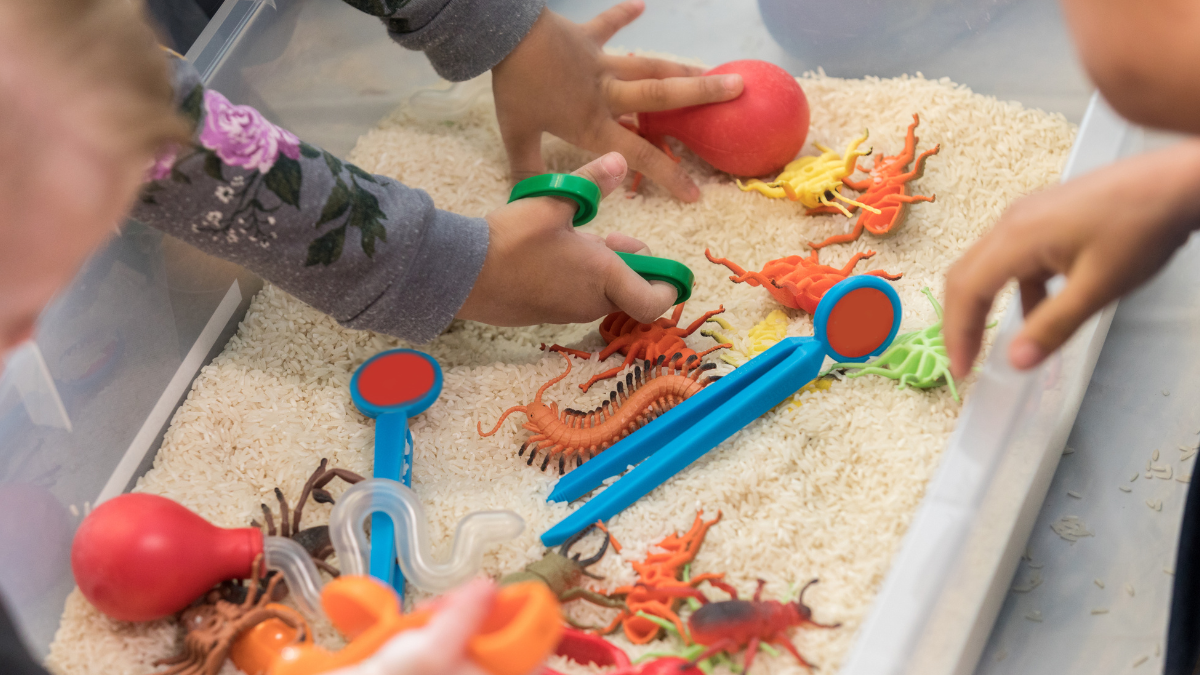Children love exploring the world around them through their senses, and this is vital for their development and growth. Through it, your child builds on their cognitive skills, helping them learn more about their environment.
Splashing, shaking, scooping, throwing, sensory play can be messy – and should be. Allowing your child to explore on their own is key for character development. Here, we’re going to delve into the benefits of sensory play and why it’s so important for children.
Examples of sensory play
When children are young, their senses haven’t fully developed, which is why partaking in sensory play from an early age is vital. In theory, sensory play is any form of play that engages the senses, including sight, touch, smell, taste and sound. It also includes spatial awareness, balance and movement.
Sensory bins are one of the best ways of incorporating sensory play into games and activities. Simply fill a bin or tub with different items like pom poms, dried rice or small toys, and allow your little one to explore unfamiliar textures. Take a step back and let them do so freely of their own accord. You should still provide supervision to ensure they are safe around small objects.
If the weather permits it, get the kids outside in the garden or the park. Think about letting them play in a sandbox or let them run around on the grass without their shoes on. Anything that gets them crawling or jumping is great. If you don’t feel comfortable with them having bare feet outside, a comfortable pair of barefoot shoes will do the trick and will still provide sensory play.
Improves fine motor skills
Sensory play is great for helping your child to enhance their fine motor skills, which includes everyday things like zipping their coat and tying their shoes. Through the use of tactile play, your child improves their ability to utilise small muscle groups and coordinate their movements.
Aids cognitive growth
Constantly questioning how things work and conducting experiments are all elements of healthy cognitive growth. This is how we learn something new and manage to figure things out. Putting your child in a challenging situation that requires them to think outside the box can elevate their problem-solving skills.
Facilities social interaction
Getting peers or siblings to engage with your child can enhance their social skills. They’ll start to communicate more effectively and express any difficulties they have to others when needing help. Learning how to play with others and work well as a team are important skills for later life.



No comments yet. Be the first one to leave a thought.